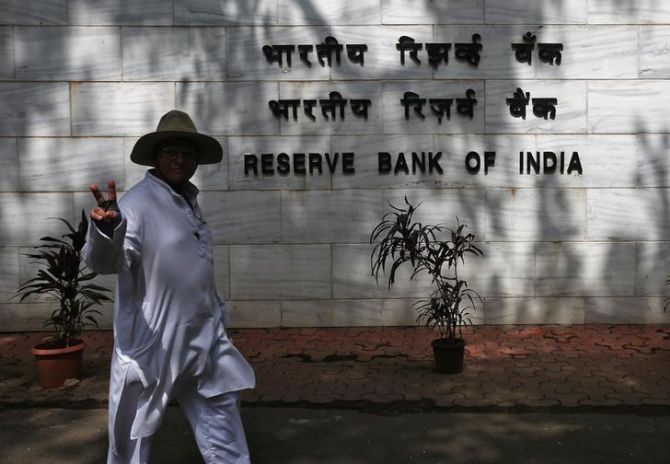The supply-side driven inflationary pressures, from food or fuel prices, would be mitigated by a neutral stance and a prolonged pause on rates, says Gaurav Kapur.

Acting along the expected lines, the monetary policy committee (MPC) voted to keep the repo rate unchanged at 6 per cent and continue with a neutral policy stance.
Maintaining caution on inflation, with CPI inflation expected to rise above the target of 4 per cent in November, the MPC was expected to leave rates unchanged.
Noting the upward shift in the trajectory of crude oil prices along with some hardening of core inflation, the forecast for headline inflation has been raised marginally to 4.3-4.7 per cent for the rest of FY18.
The risks to this forecast are seen as evenly balanced.
Among the upside risks, the MPC statement notes that household inflation expectations are rising, input cost pressures are building following higher commodity prices and likelihood of a fiscal slippage is increasing.
Mitigating these risks are seasonal easing seen in vegetable prices in winter months, recent reduction in GST rate for a number of goods and services and persistence of negative output gap.
The real GVA growth forecast has been maintained at 6.7 per cent for the whole year.
The disinflationary impact of growth remaining below potential, has been emphasised in the policy statement.
The continuation of the neutral policy stance has been attributed to this negative output gap, even though headline inflation is now seen printing above 4 per cent.
This is aimed at balancing the otherwise cautious and somewhat hawkish tone of the policy statement.
Given that headline CPI inflation would print above 4 per cent this fiscal year, the MPC would remain on pause in the February 2018 meeting too.
Any shift in the policy stance, especially to one of tightening, would be dependent upon a faster-than-anticipated pick-up in growth and strengthening of demand conditions, which in turn would push core inflation higher.
The statement notes that recent government initiatives to ease various constraints on growth, including from credit and business environment, would help support economic activity.
A change in stance in this fiscal year is unlikely.
For one, growth may turn out to be lower than expected, especially as domestic demand growth has been slowing down.
The latest round of RBI’s consumer confidence survey shows that consumer confidence is weakening.
For another, implementation risks on bank recapitalisation and GST remain and any sustainable growth pick-up would therefore happen only next fiscal year.
In the meantime, the supply-side driven inflationary pressures, from food or fuel prices, would be mitigated by a neutral stance and a prolonged pause on rates.
Incoming data on growth will become increasingly important now, especially as disentangling the impact of GST implementation from other factors driving growth would become clearer.
That too warrants maintaining status quo.
Views expressed are personal
Photograph: Shailesh Andrade/Reuters











